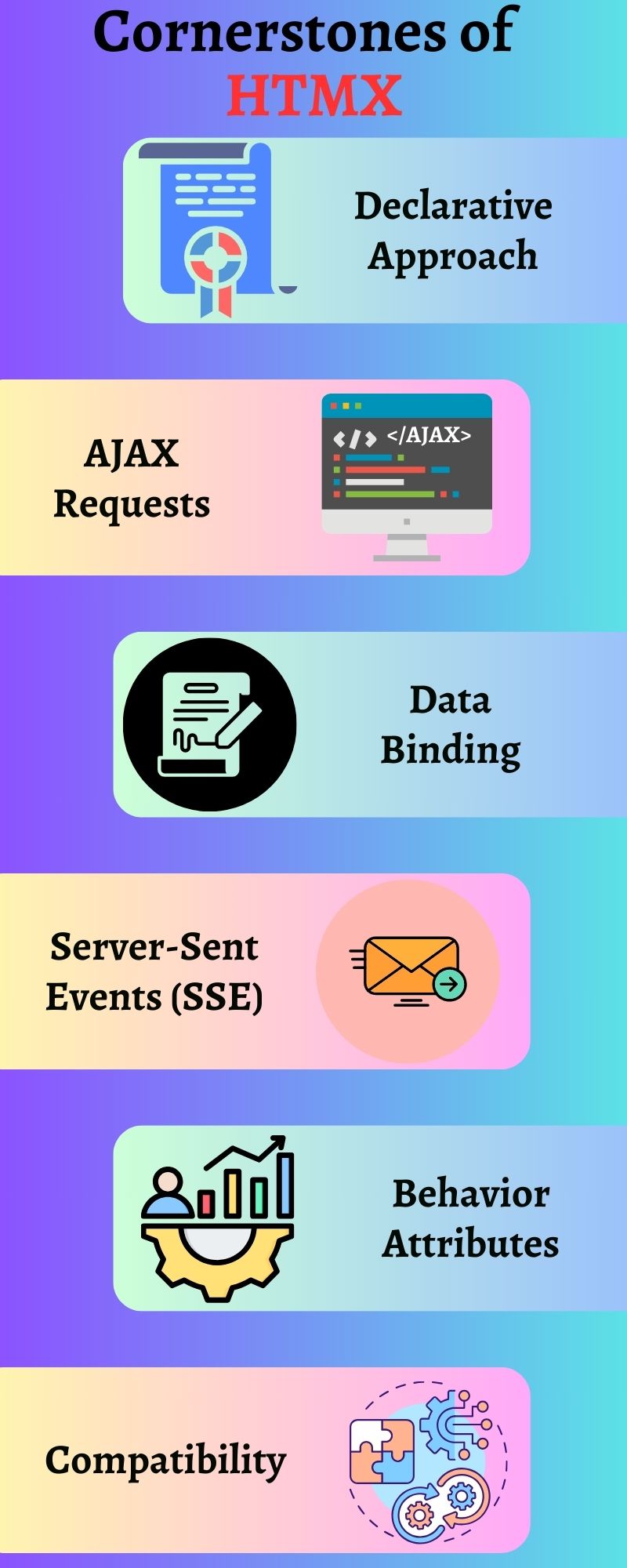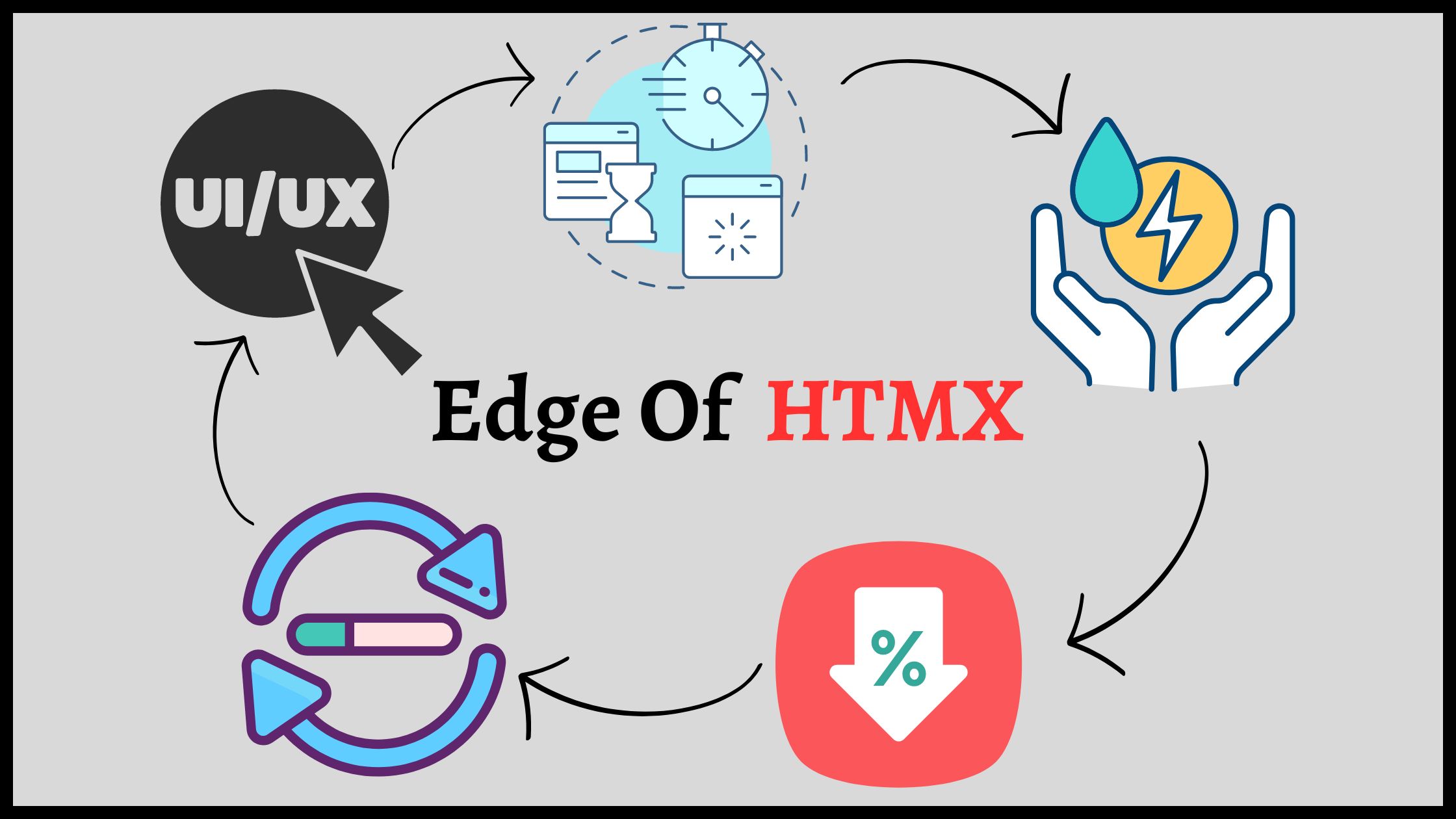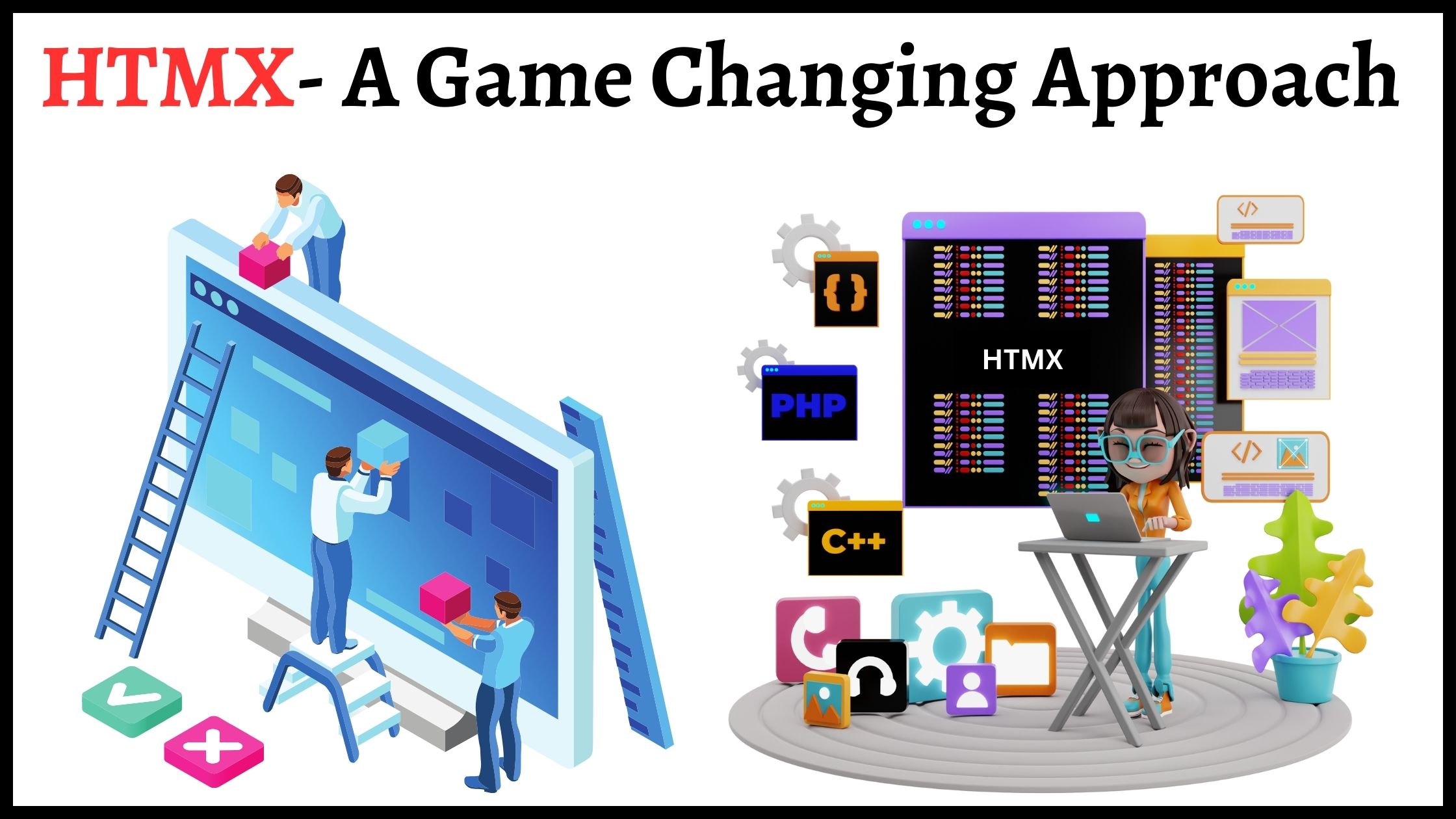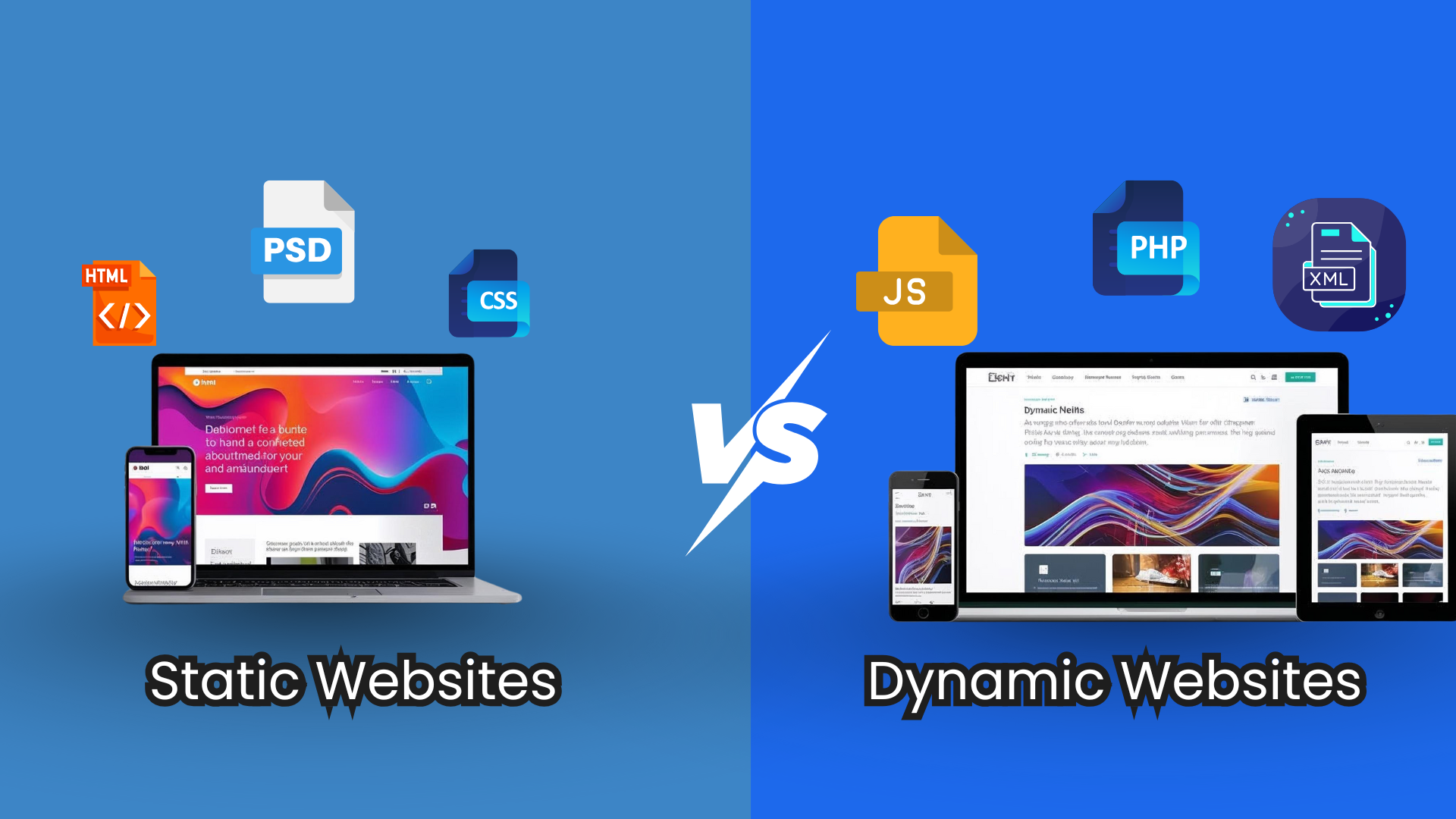Web development has undergone some remarkable evolutions over the years passing by. With a constant quest to enhance the user experience of a web solution, finding the right technology is becoming a challenge. However, one technology that has gained importance in recent years is HTMX.
While its name might evoke familiarity with HTML, HTMX is one step ahead. It’s a Hypertext Markup extension that introduces a declarative approach to dynamic user interfaces. Simply put, it’s a modern JS library that allows you to access AJAX and other advanced features simply using HTML attributes.
This technology plays a vital role in enhancing the efficiency of a business by allowing a web solution to provide faster and more seamless interactions on the web. Also, HTMX is helpful for a business to overcome traditional web development challenges.
Traditional Web Development Challenges
Over the years, setting up the HTML development environment worked as the backbone in providing a static structure to a web page. Traditionally, web development faced various challenges, including the need for complex JS, slow loading times due to excessive network requests, and so on. Here are some of the problems that traditional web development has faced:
1. Page Reloads
You have often faced a problem when you interact with any element of the page that triggers the full page reloads. This full-page reload leads to slower user interaction and a less dynamic user experience.
2. Complex JS code
Traditionally, it becomes a challenge to manage complex JavaScript code for dynamic updates. AJAX requests and DOM manipulations can be prone to errors and sometimes increase the overall page load time.
3. SSR Overhead
SSR, known as Server Side Rendering, is helpful in real-time updates and provides a responsive user interface. However, because of its complexity, achieving faster load time, especially on the initial page load, can be challenging.
How Does HTMX Address These Challenges?
Traditionally, custom website development has faced numerous challenges in providing a seamless experience to users. To address these issues, HTMX played an important role. It is a small JavaScript library that leverages both HTTP and XML to provide a seamless user experience.

1. No page Reloads
One major problem in traditional web development is page reloads. However, HTMX restricts the page reloads by facilitating dynamic updates. This results in a seamless and responsive user experience.
2. Declarative Approach
This modern JS library simplifies client and server interactions with its declarative approach. By using HTMX, a business reduces the need for complex JavaScript code and makes web development more straightforward.
3. Efficient DOM Updates
Priorly achieving quick load time on an initial web page was one of the challenges that caused SSR overheads. With HTMX, a web developer can update only the necessary parts of the DOM. This results in minimizing the overhead and enhancing the performance and responsiveness of a website or a web application.
4. Simplify State Management
This JavaScript library leverages the server-side state and allows shameless updates to the client-side state through AJAX requests. It results in simplifying the development process by reducing the likelihood of state-related bugs.
Key Features of HTMX
This Hypertext Markup Extension is designed to be minimalist and lightweight, allowing a web developer to integrate it with the existing project easily. This is just a basic feature of HTMX, it is equipped with several key features that make it a powerful tool for web development.

1. Declarative Approach
One of the key features of this modern web development technology in web development is that it follows a declarative approach. With that it means that a web development company can define the behavior of an element rather than writing extensive code for JavaScript. As a result, it results in simplifying the web development process.
2. AJAX Requests
Not only does this JS library follow a declarative approach, but it also enables AJAX requests without the need for complex JavaScript. AJAX requests enable a website or a web application to update the web content dynamically. This declines the need for full-page reloads of a web solution, either a web application or a website.
3. Data Binding
One of the popular techniques for connecting the source of information with the display element is data binding. HTMX uses two-way data binding to share data between the class of a component and its templates. This two-way data binding makes it easier to keep the client and server in synchronization without extensive manual handling.
4. Server-Sent Events
Server-sent Event is helpful in providing updates directly from the server. It is possible with HTMX as it seamlessly integrates with SSE. This benefits a business in establishing real-time communication from the server to the client for live updates.
5. Behavior Attributes
Behavior attribute is one of the notable features of HTMX. How? It is because HTMX uses this attribute in specifying the client-side behavior in HTML. Your hired web development company can help you achieve this by providing a clear way to define interactive elements of the web solutions.
6. Compatibility
One of the standout features of HTMX is that, unlike other technologies where a web developer has to install it, this is not the case. It is designed to work well with the existing server frameworks and libraries. This feature makes it highly versatile and adaptable to different stacks of technology.
How Does HTMX Work?
This library of JS works by leveraging the HTML attributes to define its dynamic behavior. This works basically by improving the traditional web development methods through a declarative approach and a seamless integration of AJAX. Here is a breakdown of how it works:
1. Declarative HTML Attributes
HTMX integrates with HTML to declare the behavior of a desired element. It can be understood better with an example, a web developer can use attributes like ‘hx-get‘ to specify the role of AJAX request whenever an element is clicked.
2. Client-Side Interactions
The interaction of an element is defined directly in the HTML by making the use of behavior attributes. It can result in triggering the AJAX requests to the server, which makes data-fetching easier and helps a business to update the content of a website dynamically.
3. Minimal JavaScript Code
Unlike traditional JavaScript-heavy approaches, HTMX reduces the need for extensive client-side rendering. This is because the focus of this web development technology is to define the HTML behavior, which simultaneously reduces the development time.
The Benefit of the Declarative Approach in HTMX
The declarative approach utilized by HTMX offers various benefits to a business, from improved development speed to reduced code complexity. Here are some of the benefits of this new approach in web development.

1. Improved User Experience
Previously, a user had to wait longer for a page to load, causing a negative user experience and a bad impression of a web solution. The declarative approach used by HTMX facilitates dynamic content updation without a full page reload. This process results in a smoother and more responsive user experience, which leads to higher user engagement.
2. Faster Development
Web developers do not have to write extensive code for an element manually. Instead, HTMX allows them to declare the desired element’s behavior. This reduces the development time, helps a business operate more quickly, and brings features and updates to the market faster.
3. Reduced Complexity
The declarative nature of HTMX significantly reduces the complexity of web development. Developers can focus on defining the desired outcome, leaving the library to handle the implementation details.
4. Real-time Updates
A business that is able to provide real-time updates about the event is making its way above the burgeoning events. HTMX has the capability to provide updates in real-time by employing SSE (Server-Sent Events). This can help a business provide real-time updates easily. It enhances collaboration, live notifications, and other dynamic functionality. One such example nowadays is social media applications that use the power of real-time updates.
5. Efficient Usage of Resources
HTMX makes good use of resources in web development. It helps a custom web application development company select only the necessary parts that can be updated while following the DOM updation process. This way, it leads to the efficient usage of resources by saving costs.
Implementation in Real World Project
With the change in time, the web development industry has seen various new technologies come into the market; one such is HTMX. This tech stack provides various benefits to a business and is helpful for a range of web development projects, from web applications to custom website development.
1. Blog Site
You can use HTMX for the development of blog sites. It seamlessly enhances user interactions without sacrificing performance. You can take advantage of the declarative approach of this technology to effortlessly implement features like infinite scrolling for article pagination and so on. For instance, integrating HTMX with a Python-based web framework enables dynamic content updates without the need for dynamic client-side scripting. This will not only enhance the user experience but also reduce page reloads and simplify web development.
2. Sites With API Integration using HTMX
HTMX can be a valuable tech type in streamlining data retrieval. Implementing HTMX in this context allows a developer to create dynamic interfaces for fetching and presenting real-time information from external APIs. By specifying behavior attributes within the HTML development environment, a developer can seamlessly trigger API requests and update the UI with the received data.
3. eCommerce Platform
We have witnessed huge demand for the development of online stores as the years rolled by. But it is also evident that the laggy and poor user interface causes negative shopping experiences. To eradicate this, a business can utilize the power of HTMX in providing real-time product updates, building interactive shopping carts, and offering a seamless checkout process to users. This leads to enhancing the user satisfaction and conversion rates of a business.
4. Web Application
Web applications have gained significant success and are being preferred after the success of Facebook, Canva, and others. How? It is because these are able to provide real-time updates to the users. There comes HTMX. This web development technology is able to provide users with instant updates, which makes it preferable to develop interactive web applications.
Why Choose HTMX for Your Next Project?
Your decision to choose this JS library for your next project can help you streamline the development by improving the user experience of your website or web application. Opting for this modern technology can bring several benefits to your project:
1. Simplicity
HTMX simplifies the web development process by allowing a business to update parts of a web page without a full-page reload. This simplicity results in cleaner and more maintainable code, which results in accelerating the web development process.
2. Progressive Enhancement
A web developer can start building your web application with basic HTML, and over the duration, the hired expert can enhance it progressively with dynamic features. This ensures a business sets a solid foundation for its users by providing a rich user experience.
3. Enhances User Experience
Being a modern technology type, it enables dynamic content updates without full-page reloads. This leads to a smoother, more responsive user experience. As a result, a business can increase its user’s satisfaction and engagement with the web solution.
Why Choose CSSChopper for HTMX Projects?
Selecting CSSChopper for HTMX development ensures a strategic blend of expertise and innovation. We bring a wealth of experience to the table in providing exceptional web solutions.
We use HTMX to simplify web development and ensure flawless integration with your existing tech stack. Our skilled responsive web developers team is engaged in delivering dynamic and responsive websites or web applications as per the needs of clients.
With our client-centric and agile development approach, we develop tailored and timely solutions. We have provided web solutions for clients in healthcare, logistics, education, and more. Our transparent and efficient processes are the cornerstone of our work.
Conclusion
With the change in time, the traditional approach to web development loses its shine. To keep up with the time, the need for dynamic UI has arisen, and HTMX has served as a cornerstone tech stack. It helps a business to develop dynamic UIs by using the declarative web development approach with a perfect blend of AJAX requests. With its simplicity, speed, and ability, it enhances the user experience of a business. This makes it a valuable technology for a business to enhance its online presence.
Categories
Recent Posts
Popular Posts
- How to Choose a Reliable Offshore Development Partner?
- Transforming Web Development with HTMX’s Declarative Approach for Dynamic UIs
- Why Your Conversion Funnel Needs a Composable Commerce Solution?
- How to Outsource Web Development in 2025: Complete Guide
- What are the Top Web Development Trends for 2025?




